8 new regulations and policies on automobiles take effect from January 1, 2018
(Baonghean.vn) - 2018 is predicted to be a year of fluctuations in the Vietnamese automobile market due to the application of many new policies. These regulations will contribute to affecting the selling price as well as the registration and use of automobiles.
1.Reduce import tax on auto parts to 0%
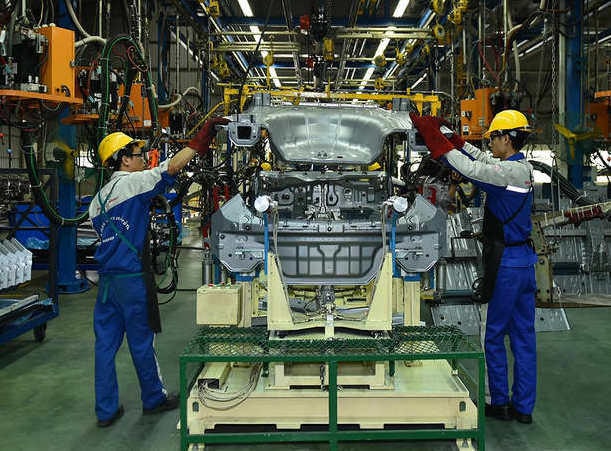 |
| Domestic auto assembly enterprises will enjoy a 0% import tax rate on auto components if they meet the prescribed conditions. |
The Government has issued Decree No. 125/2017/ND-CP amending and supplementing, officially approving the application of 0% preferential tax on imported auto components (group 98.49) in the tax schedule, effective from January 1, 2018.
The subjects eligible for the tax incentive program are enterprises that meet the standards of automobile manufacturing and assembling enterprises according to Government regulations on conditions for manufacturing, assembling, importing and providing automobile warranty and maintenance services.
In addition, enterprises must commit to producing and assembling cars that meet Euro 4 emission standards (from 2018 to 2021) and Euro 5 (from 2022 onwards) and achieve the prescribed output.
2. Import tax on cars from ASEAN is 0%
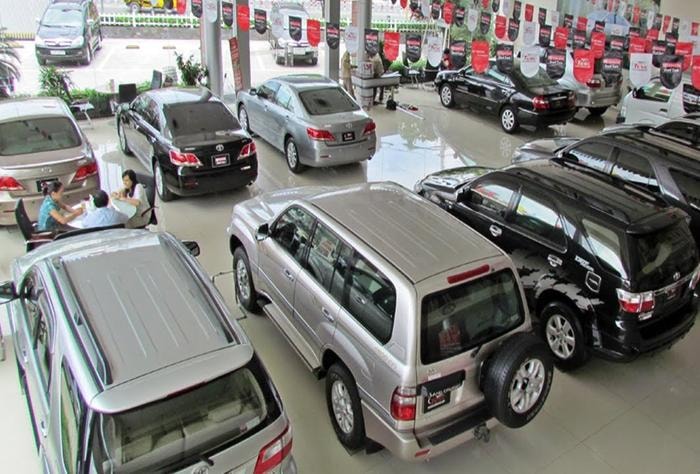 |
| Since the beginning of 2018, imported cars with a localization rate of over 40% from ASEAN to Vietnam have enjoyed a 0% import tax. |
Implementing the ASEAN Free Trade Agreement (AFTA) commitment, import tax on cars from this region to Vietnam will be 0% (for cars with a localization rate of 40% or more) from January 1, 2018.
Accordingly, from now on, car models imported from countries such as Thailand, Indonesia or Malaysia will have import tax reduced to 0% with the localization rate of products in the bloc from 40% or more.
Vietnam is importing many car models from ASEAN countries such as pickup trucks, Toyota Fortuner, Honda CR-V, Ford Everest or Toyota Yaris.
3. Decree 116 takes effect
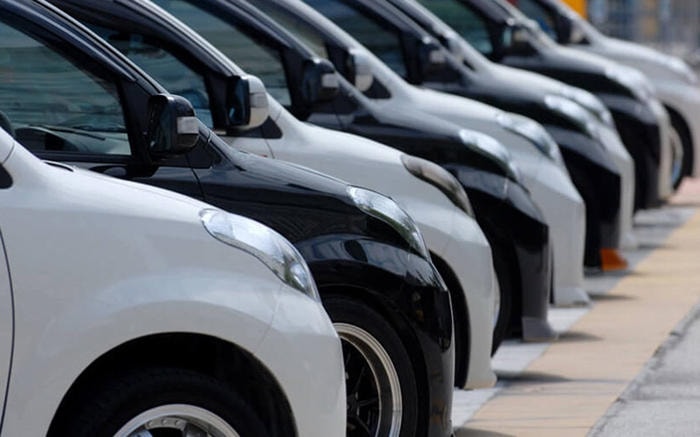 |
| From January 1, 2018, car import businesses must comply with new regulations under Decree 116. |
From January 1, 2018, Decree 116/2017 regulating the conditions for production, assembly, import of components and provision of auto warranty and maintenance services issued by the Government will take effect.
The Decree clearly states the conditions that businesses must meet to be allowed to import cars, including: Having a car warranty and maintenance facility according to the correct standards (can be rented), businesses must have a recall authorization from a foreign manufacturer, have a type quality certificate from the place of manufacture, businesses must commit to components and spare parts that meet vehicle standards, must check the quality of 1 car in every imported shipment, a minimum warranty of 2 years or 50,000 km for used imported cars, and have full import documents according to regulations.
In addition, domestic automobile assembly and manufacturing enterprises must build a test track at least 800m long, and vehicles must have a minimum warranty of 3 years or 100,000 km...
4.Supplementing import regulations for used cars
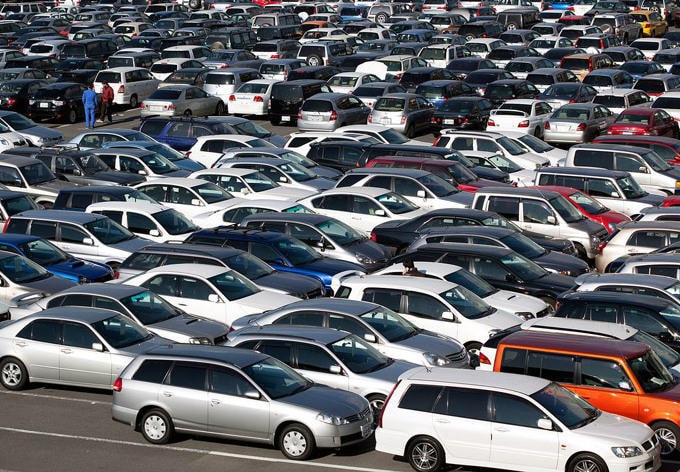 |
| Used car prices imported to Vietnam will increase in 2018. |
Also according to the amended Decree 125, the Government changes the preferential export and import tariff schedule, the list of goods and absolute tax rates, mixed tax, and import tax outside the tariff quota.
Specifically, for cars with 9 seats or less (including the driver) with a cylinder capacity of no more than 1.0L, an absolute tax rate of 10,000 USD/car will be applied, double the current rate. For passenger cars with a cylinder capacity of 1.0L or more and passenger cars with 10-15 seats including the driver in group 87.02, a mixed tax rate will be applied.
For cars equipped with engines with cylinder capacity from 1.5L to under 2.5L, the mixed tax rate will include the tax price of the used car multiplied by the tax rate from 150% to 200% and plus 10,000 USD/car.
For vehicles using engines with a cylinder capacity of 2.5L or more, the import tax will be calculated based on the taxable price of the used car multiplied by the tax rate of 150% to 200%, plus an additional amount of 15,000 USD/vehicle.
5. Reduce special consumption tax by another 5% for cars under 2.0L
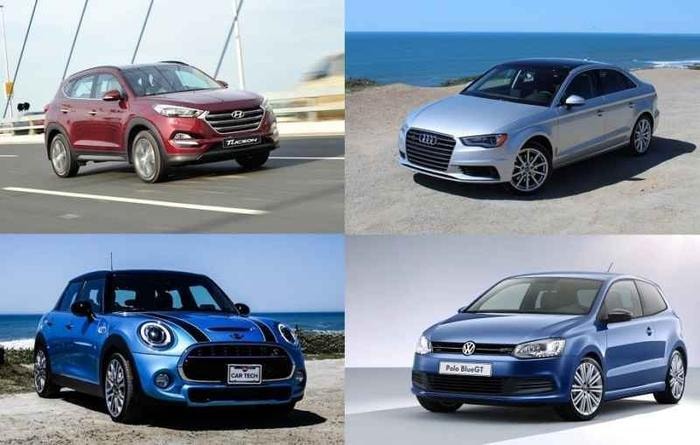 |
| From 2018, special consumption tax on cars with 9 seats or less, equipped with engines with engine capacity under 2.0L will decrease by 5% compared to before. |
According to the amended Law on Special Consumption Tax, from January 1, 2018, passenger cars with 9 seats or less and a cylinder capacity of 2.0L or less will receive a 5% reduction in special consumption tax.
Thus, the special consumption tax rate for car models with cylinder capacity from 1.5L - 2.0L is reduced to 40% instead of 45% as before. Similarly, car models with cylinder capacity from 1.5L is reduced to 35%.
6. Penalty for people sitting in the back of a car without wearing a seat belt
 |
| From January 1, 2018, people sitting in the back seat of a car without wearing a seat belt will be fined. |
From January 1, 2018, people sitting in the back seat of a car without wearing a seat belt (where equipped) while the car is moving will be fined.
Specifically, point k, clause 1, article 5 of the Decree states that a fine of 100,000 VND to 200,000 VND will be imposed for the act of "not wearing a seat belt (in a position equipped with a seat belt) while the vehicle is running". In addition, according to point l, clause 1, article 5, the act of "carrying a person in a car without wearing a seat belt (in a position equipped with a seat belt) while the vehicle is running" is also subject to a fine of 100,000 VND to 200,000 VND.
The purpose of this regulation is to protect the lives of people sitting in cars while the car is moving. In fact, there are many cases of people sitting in cars while driving but not wearing seat belts, when an accident occurs, it leads to serious injuries, even death due to impact and being thrown out of the car.
7. Cars below Euro 4 emission standards are not inspected.
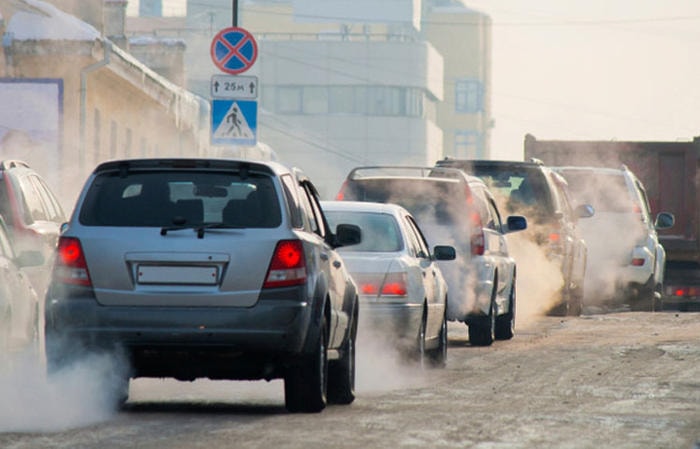 |
| From January 1, 2018, newly manufactured, assembled and imported cars must meet level 4 emission standards to be inspected. |
Implementing the direction of the Prime Minister in Official Dispatch No. 436 dated March 28, 2017 and of the Ministry of Transport on implementing the roadmap for applying emission standards for automobiles and motorbikes.
From January 1, 2018, the Vietnam Register will stop accepting registration and issuing technical safety certificates for newly manufactured, assembled or imported cars using diesel fuel with emission levels that do not meet Euro 4 standards or higher.
For vehicles using diesel fuel, enterprises importing and assembling automobiles must have import and production plans to ensure the completion of customs procedures, registration and release to the market before December 31, 2017. After this date, if not completed, the vehicle must be re-exported or exported.
8. Increase in car parking fees in Hanoi
The Chairman of the Hanoi People's Committee has just signed to promulgate prices for bicycle, motorbike and car parking services in Hanoi, effective from January 1, 2018.
Accordingly, the parking fees for cars by turn as well as by month have increased sharply. For example, the parking fee in the districts has increased to a maximum of 30,000 - 35,000 VND/car/turn. On some central streets, the monthly parking fee for cars under 9 seats (day and night) can reach 3,000,000 - 4,000,000 VND/car/month.
For vehicle parking services invested with non-state budget capital, the investor shall base on actual costs at each vehicle parking point to establish the price according to the guidance in Circular No. 25/2014/TT-BTC dated February 17, 2014 of the Ministry of Finance and decide on the roadmap for adjusting service prices, but they must not be higher than the city's prescribed price, to avoid causing impacts on people's lives.
Ngoc Anh
(Synthetic)
| RELATED NEWS |
|---|

